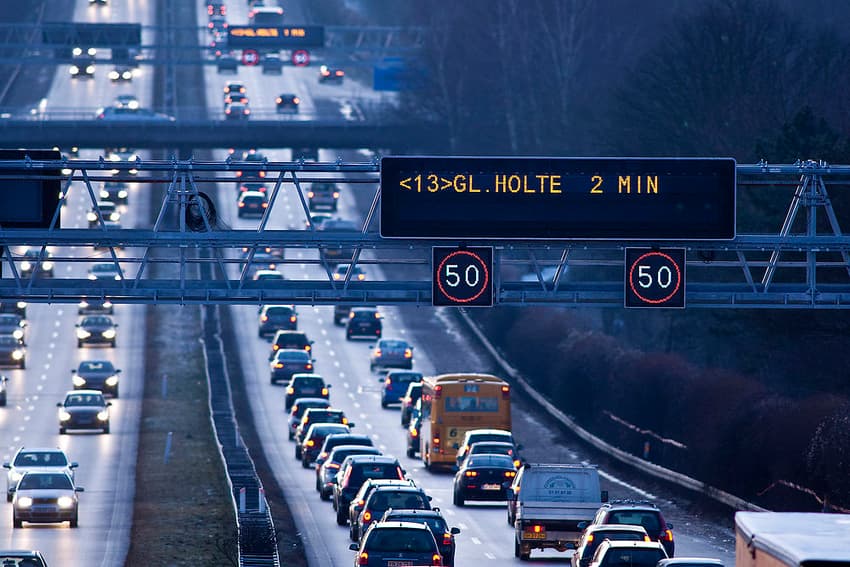Here are Denmark’s longest commutes

The distance Danes travel to and from work varies greatly across the country, a new study shows.
At 62 kilometres, employees working in Høje-Taastrup municipality have Denmark’s longest commutes, writes dibusiness.dk.
That is how far employees at companies in Høje-Taastrup commute to and from work on average, giving the municipality the honour of having the longest commutes in Denmark.
Second on the list comes Allerød with 59 kilometres, followed by Ballerup and Ikast-Brande – the only one of the top four to be located in Jutland. In the two latter municipalities, employees at local companies travel 56 kilometres to and from work.
These are the results of a new analysis of the commutes of Danish workers, carried out by think tank Kraka on behalf the Danish Transport Federation.
The relatively long commutes testify to the fact that Danes are willing to make a great effort to go where their competences are most beneficial, according to director of the Danish Transport Federation Michael Svane.
“It is impressive that employees in parts of the country travel over 50 kilometres to and from work. After all, few people really enjoy spending time on transport,” Svane said.
“I’m pleased that so many people are willing to spend extra time behind the wheel or in the train. This benefits both companies and the employees themselves. The more mobile Danes are, the greater the chances of securing the perfect match between employee and company,” he added.
Setting aside island municipalities, Halsnæs, Frederiksberg and Odder are the municipalities in Denmark where employees have the shortest commutes to work. Here, the average commute is around 30 kilometres.
There are several explanations for why the distance that workers commute varies so greatly across the country, Svane said.
The ease of getting to and from the municipalities is an important factor. Poor transport connections will dissuade people from travelling to that municipality for work.
Also important is the type of companies located in the municipality. Companies that draw upon highly specialised labour may need to attract workers who live far away.
“Bottom line is we must always strive to make it as easy as possible for Danes to get to and from work. Spending less time on transport will improve people’s everyday lives. At the same time, it will make it easier for companies to attract the competences they need in order to create growth and jobs,” Svane said.
READ ALSO: One third of Danish commuters faces congestion: report
Comments
See Also
At 62 kilometres, employees working in Høje-Taastrup municipality have Denmark’s longest commutes, writes dibusiness.dk.
That is how far employees at companies in Høje-Taastrup commute to and from work on average, giving the municipality the honour of having the longest commutes in Denmark.
Second on the list comes Allerød with 59 kilometres, followed by Ballerup and Ikast-Brande – the only one of the top four to be located in Jutland. In the two latter municipalities, employees at local companies travel 56 kilometres to and from work.
These are the results of a new analysis of the commutes of Danish workers, carried out by think tank Kraka on behalf the Danish Transport Federation.
The relatively long commutes testify to the fact that Danes are willing to make a great effort to go where their competences are most beneficial, according to director of the Danish Transport Federation Michael Svane.
“It is impressive that employees in parts of the country travel over 50 kilometres to and from work. After all, few people really enjoy spending time on transport,” Svane said.
“I’m pleased that so many people are willing to spend extra time behind the wheel or in the train. This benefits both companies and the employees themselves. The more mobile Danes are, the greater the chances of securing the perfect match between employee and company,” he added.
Setting aside island municipalities, Halsnæs, Frederiksberg and Odder are the municipalities in Denmark where employees have the shortest commutes to work. Here, the average commute is around 30 kilometres.
There are several explanations for why the distance that workers commute varies so greatly across the country, Svane said.
The ease of getting to and from the municipalities is an important factor. Poor transport connections will dissuade people from travelling to that municipality for work.
Also important is the type of companies located in the municipality. Companies that draw upon highly specialised labour may need to attract workers who live far away.
“Bottom line is we must always strive to make it as easy as possible for Danes to get to and from work. Spending less time on transport will improve people’s everyday lives. At the same time, it will make it easier for companies to attract the competences they need in order to create growth and jobs,” Svane said.
READ ALSO: One third of Danish commuters faces congestion: report

Join the conversation in our comments section below. Share your own views and experience and if you have a question or suggestion for our journalists then email us at [email protected].
Please keep comments civil, constructive and on topic – and make sure to read our terms of use before getting involved.
Please log in here to leave a comment.